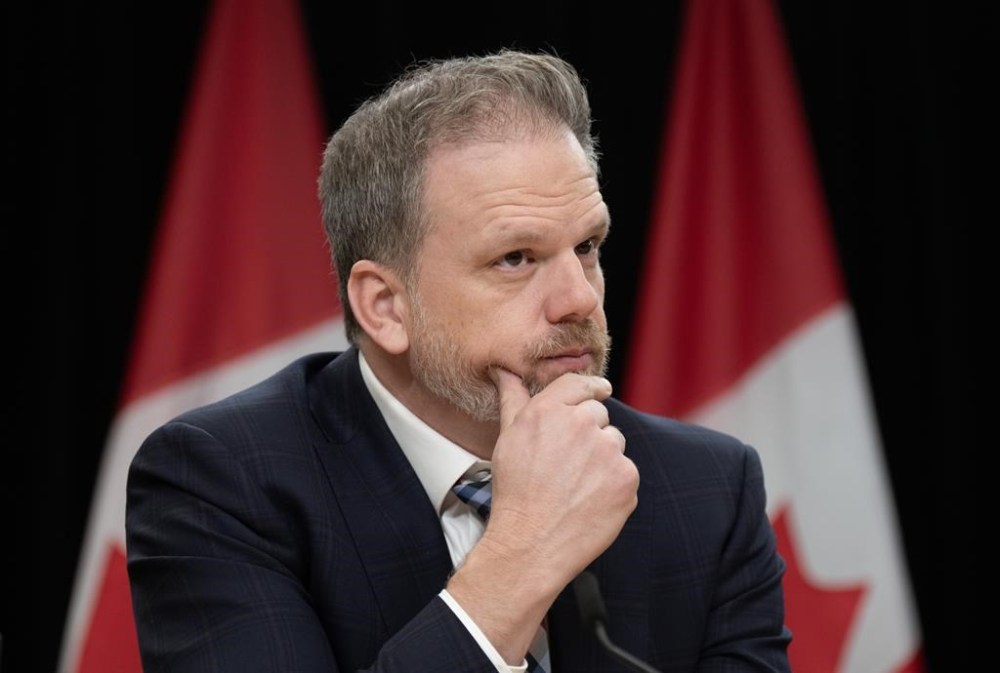Pharmacare not the top health priority for most Canadians: survey
Advertisement
Read this article for free:
or
Already have an account? Log in here »
To continue reading, please subscribe:
Monthly Digital Subscription
$0 for the first 4 weeks*
- Enjoy unlimited reading on winnipegfreepress.com
- Read the E-Edition, our digital replica newspaper
- Access News Break, our award-winning app
- Play interactive puzzles
*No charge for 4 weeks then price increases to the regular rate of $19.00 plus GST every four weeks. Offer available to new and qualified returning subscribers only. Cancel any time.
Monthly Digital Subscription
$4.75/week*
- Enjoy unlimited reading on winnipegfreepress.com
- Read the E-Edition, our digital replica newspaper
- Access News Break, our award-winning app
- Play interactive puzzles
*Billed as $19 plus GST every four weeks. Cancel any time.
To continue reading, please subscribe:
Add Free Press access to your Brandon Sun subscription for only an additional
$1 for the first 4 weeks*
*Your next subscription payment will increase by $1.00 and you will be charged $16.99 plus GST for four weeks. After four weeks, your payment will increase to $23.99 plus GST every four weeks.
Read unlimited articles for free today:
or
Already have an account? Log in here »
Hey there, time traveller!
This article was published 20/12/2023 (693 days ago), so information in it may no longer be current.
OTTAWA – As Liberals and New Democrats negotiate what a future national drug plan should look like, a new survey suggests pharmacare is not at the top of the priority list for most Canadians.
The survey shows that when asked to name their top two health-care priorities, only 18 per cent of those surveyed said the government should prioritize creating a new, universal, single-payer drug plan.
More funding toward surgical wait times, building more long-term care homes and expanding mental-health services all garnered significantly more support, at 36 per cent, 32 per cent and 30 per cent respectively.

“All of that comes before having a universal single-payer drug plan,” said Christian Bourque, Leger’s executive vice-president.
“It’s not at the top of Canadians’ priority list.”
The Leger polling firm conducted the web survey of 1,622 Canadians from Friday to Sunday. Online surveys cannot be assigned a margin of error because they are not considered truly random samples.
The Liberals promised to pass pharmacare legislation that would serve as the foundation of a national drug plan by the end of 2023, as part of their political pact with the NDP.
The survey shows 53 per cent of those polled were unfamiliar with the government’s plans.
In the deal, New Democrats said they would support the minority government on key House of Commons votes in exchange for movement on NDP priorities like pharmacare.
But the two parties couldn’t agree on the language in the bill before the House of Commons rose for the holidays.
They have instead agreed on a new March 1 deadline for the Liberals to table legislation.
The main sticking point appears to be the NDP’s staunch insistence on a universal, single-payer system, which was the model recommended by Canada’s advisory council on the implementation of national pharmacare in 2019.
Mark Holland has also repeatedly cited the government’s need to be financially prudent.
Of those surveyed, only 22 per cent said a new drug plan should replace basic drug coverage they receive from employers.
A plurality of 44 per cent supported a plan that would offer coverage to people without existing drug coverage, seniors and people who make less than $90,000 per year.
“That’s probably due, to some extent, to the fact that two out of three Canadians do have private health-care coverage, either themselves or through their spouse,” Bourque said.
Though there doesn’t appear to be overwhelming support for prioritizing a national drug plan, there isn’t a lot of outright opposition to the idea, Bourque noted.
Only 17 per cent of those who responded said a new drug plan should not be a priority for the government. Even among respondents who intend to vote for the Conservative party, opposition to the plan was relatively weak.
“Once you look inside the actual Conservative voter base, only 23 per cent of them say ‘I don’t want (any) part of pharmacare,'” said Bourque.
“So, if there was a form of pharmacare, I think it would be good news for a majority of Canadians.”
Even if the Liberals and NDP agree on language for a pharmacare bill, there’s no guarantee the government would move ahead with a national drug plan in the immediate term.
The legislation is key to securing the NDP’s support and preventing an election before the scheduled contest in 2025.
That’s all the more important to the government’s political future, after the Conservatives overtook the Liberals in the polls this year by a significant margin.
Leger found in its latest poll that Conservative support has dipped slightly over the past few weeks.
Among decided voters, 38 per cent of respondents said they would vote for the Tories if federal elections were held at the time of the survey. That’s down from 40 per cent of respondents in late November.
But the Conservatives still have a significant lead over the Liberals’ 28 per cent support and the New Democrats at 18 per cent.
This report by The Canadian Press was first published Dec. 20, 2023.

